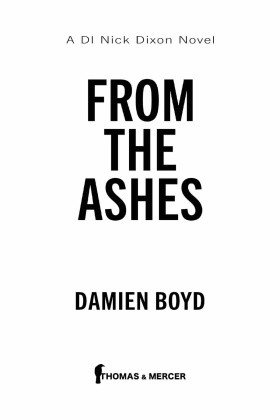‘Then his body will need to be retained, pending a prosecution. There may need to be a further post mortem too, if the defence insists.’
‘Hardly resting in peace, is it?’
‘All I can say is, if my father had been murdered, I’d want justice for him,’ replied Dixon. ‘I’d want to know who did it and why.’
‘And you’ll be able to tell me that?’
‘At the moment we have two victims, both retired teachers from schools in Burnham-on-Sea, one from St Joseph’s and the other from St Christopher’s. There’s evidence they knew each other and we’re exploring various lines of enquiry on that basis. If your father was a victim, Mr Fowler, then it changes everything – possibly changes everything.’
‘I don’t think Pops ever went to Burnham.’
‘How long was he a lift engineer?’
‘He was in the army for a while, got to regimental sergeant major, left when he was about forty or so, then got the job with Kone. Stayed there until he retired, so twenty-plus years.’
‘Did he know a Deirdre Baxter or a Michael Allam?’
‘They’re not names I ever heard him mention. Let me check his address book, it’s in the other room.’
Sarah looked puzzled, but waited until Fowler had left the kitchen. ‘How did you know he’d gone into a care home, Sir?’ she asked.
‘It’s on the death certificate, under “place of death”.’
‘There’s nothing in his address book under B or A,’ said Fowler, thumbing through the pages of a small red book when he reappeared in the kitchen.
‘May we?’ asked Dixon, his hand outstretched, passing the book to Louise in one motion when Fowler placed it in his hand.
‘Can we keep it?’ she asked.
‘I will get it back?’
‘Yes,’ replied Dixon.
‘I’m guessing you need my permission for this exhumation then?’ asked Fowler.
‘Your father is buried in the churchyard at St Mary’s, which is consecrated ground. We have to apply for a faculty under ecclesiastical law, and notice has to be given to the next of kin.’ Nothing like a bit of legal jargon to move the subject on quickly.
‘There’s only me,’ said Fowler. ‘I just can’t believe anyone would want to kill my old man.’ Tears were collecting in the corner of his eyes as the full realisation that his father might have been murdered hit home. ‘Why?’
‘We don’t know, Sir. Yet.’
Fowler’s back straightened – by resolve hopefully, thought Dixon.
‘Do I have to sign something?’
‘A copy of the notice of petition. My colleague has the papers,’ replied Dixon, turning to Louise. ‘While you’re doing that, could I see your father’s belongings, perhaps the stuff he took with him to the care home?’
‘It’s mostly gone, I’m afraid. His clothes weren’t even good enough for the charity so they went in the bin. There were puzzle books and magazines, but they went in the recycling.’
‘Any photographs?’
‘I’ve got the family albums at home. Sorry.’

‘You’ve got to ring that bloke in London after four o’clock, don’t forget, Sir,’ Sarah had said, just before she had sped off in her Fiesta. ‘I’ll text you his name and number when I get back to Express Park.’
Now Dixon and Louise were sitting in his Land Rover in the gravel car park in front of Lower Ham House, lights on inside even though it wasn’t quite dark yet.
A concrete ramp up to the front door; another one to a side entrance to what looked like a new annexe. Dixon could just about make out piano music and singing as he slid out of his Land Rover into the drizzle.
‘Something to look forward to, hey, Sir,’ said Louise.
A wave of his warrant card got them through the locked front door when a carer finally answered the doorbell, Dixon flicking back through the pages of the visitors’ book while he waited for the manager. There were several entries for the fourth of December, none visiting Thomas Fowler.
‘Can I help you?’ The voice sounded nervous, but then perhaps it was just his new rank. Dixon had noticed that – the higher his rank, the more nervous people became.
‘We’re making enquiries into the death of Thomas Fowler,’ he said.
‘He wasn’t with us long, sadly.’
The faint smell of stale urine reached him as he followed the manager along the corridor to her office, formal introductions along the way. Jenny, as she insisted on being called, was wearing a red sweatshirt over her carer’s uniform, a large iPhone sticking out of her back pocket.
‘Who found Mr Fowler?’
‘Elena. She’s from Romania. She came and got me and we called the doctor.’ Jenny closed the door of her small office. ‘It’s not an altogether unusual event in a place like this.’
Dixon handed her the visitors’ book. ‘Can you account for all these visitors on the fourth of December?’

























